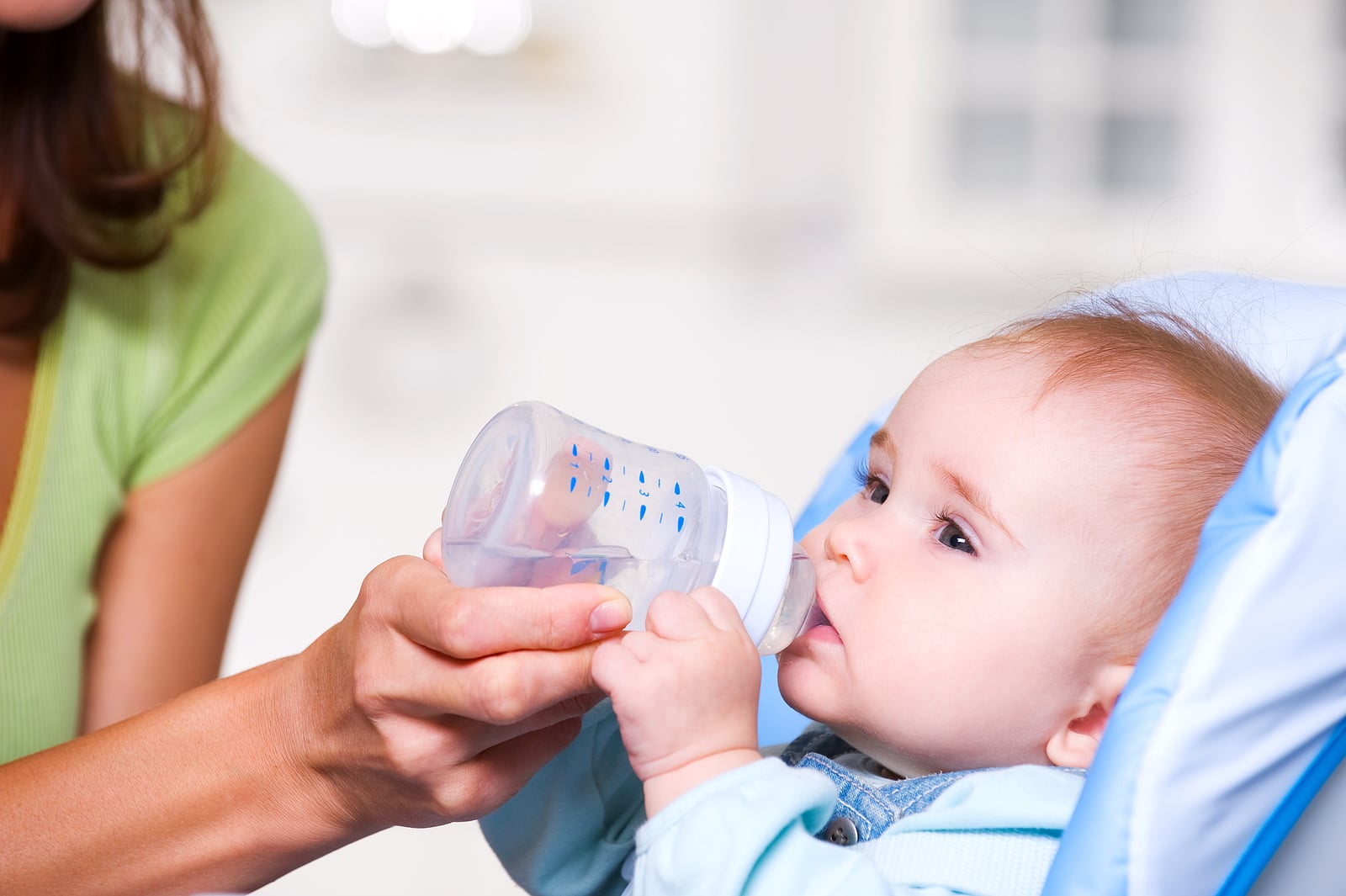When Can My Baby Have Water? A Parent’s Essential Guide

Understanding Your Baby’s Hydration Needs
The journey of parenthood is filled with milestones and questions, one of which often arises: “When can my baby have water?” It’s a critical query that every new parent encounters as they navigate the delicate balance of their infant’s nutrition. This article aims to provide you with an in-depth understanding of when and how to introduce water into your baby’s diet.
The Role of Water in Infant Nutrition
Water is essential for life, but for newborns and infants, hydration needs are met primarily through breast milk or formula. These liquids contain the perfect blend of nutrients, vitamins, and — crucially — water, tailored specifically for your baby’s developing body during the first six months.
Exclusive Breastfeeding or Formula Feeding – Zero to Six Months
During the initial six months of life, the American Academy of Pediatrics (AAP) recommends exclusive breastfeeding or formula feeding without adding any additional water. Both breast milk and infant formula have a natural balance of electrolytes and fluids that support optimal growth and digestion; supplementing with water may upset this balance and potentially lead to health issues like water intoxication.
Transition Period: Introducing Solids and Sips of Water Around Six Months
As your baby reaches the six-month milestone, they typically start to consume solid foods. At this point, parents can consider offering a few sips of water in a small cup during mealtimes. This introduction serves two purposes: it aids in familiarizing your child with drinking from a cup and helps them stay hydrated as they explore new textures and tastes.
Gradual Increase in Water
Intake Gradually,as your baby consumes more solid foods and their liquid intake from breast milk or formula decreases, their need for supplementary water increases. However, remember that breast milk or formula should remain the primary source of hydration until at least 12 months of age.
Signs of Adequate Hydration
Ensure you observe your baby for signs of adequate hydration, such as wet diapers (about six per day), moist mouth, and overall alertness. If, at any stage, you notice signs of dehydration (like fewer wet diapers or lethargy), consult your pediatrician immediately.
Safe Practices for Giving Water to Babies
When introducing water, always use a clean, BPA-free cup or bottle. Avoid using bottles with nipples designed for milk as these can encourage overconsumption of water. Moreover, never give your baby water straight from the tap; always boil and cool it to room temperature to eliminate potential contaminants.
Active and Passive Voice Usage
Active voice usage is essential for clear communication, e.g., “Parents should offer a few sips of water.” Conversely, passive voice can be used sparingly, as in, “Water is recommended to be offered by parents.” While both have their place, active voice is preferred for direct instructions.
Common Misconceptions About Baby Hydration
Despite popular belief, giving water to relieve constipation is not usually necessary for breastfed babies. Instead, focus on maintaining a consistent feeding schedule. Similarly, do not dilute formula with water as it can disrupt the nutrient balance vital for your baby’s development.
Conclusion
In summary, while the question “When can my baby have water?” has a straightforward answer initially — no water before six months — the process becomes more nuanced as your little one grows and develops. Remember, each baby’s needs may vary, so always consult with your pediatrician about your baby’s specific hydration requirements. Ultimately, by following expert guidelines and closely monitoring your baby’s cues, you’ll ensure they receive the right amount of water at the appropriate time in their developmental journey.
Monitoring Water Intake
During Hot Weather or Illness During periods of high heat or illness,your baby might require extra fluids. In these instances, while it’s still important to rely mainly on breast milk or formula, your pediatrician might advise offering small amounts of water more frequently to prevent dehydration.
Importance of Proper Hydration for Development
Proper hydration plays a pivotal role in supporting numerous bodily functions in infants, including brain development, digestion, and regulation of body temperature. Thus, ensuring your baby gets the right amount of water at the right time is key to fostering healthy growth.
Choosing the Right Time to Offer Water
Before meals, after feedings, or during playtime, these are ideal moments to introduce water to your baby. Offering water in between solid food feedings can help create a positive association with drinking water and prevent overfilling their tiny tummies.
Recognizing Overhydration
Although keeping your baby hydrated is crucial, it is equally important to recognize the risks of overhydration. If too much water is consumed, it could dilute the sodium levels in their bloodstream, leading to a condition known as hyponatremia. Therefore, always adhere to the recommended water intake guidelines.
Transitioning to a Sippy Cup
As your baby approaches their first birthday, you can gradually transition them from a soft spout cup to a sippy cup, allowing them to drink water independently while minimizing spills. This transition encourages self-feeding skills and fosters autonomy.
Creating a Healthy Relationship with Water
By establishing a healthy pattern of water consumption early on, you empower your child to develop lifelong habits of proper hydration. Consistently offering water alongside meals will instill its importance and make it a natural part of their daily routine.
FAQs on Baby Hydration
Q:Is it okay to give my baby flavored water?
A: Plain water is best for infants. Flavorings can introduce unnecessary sugars and may deter them from acquiring a taste for plain water.
Q: What if my baby refuses water?
A: If your baby isn’t interested in water, don’t force it. Keep offering in a relaxed manner, and they’ll likely develop a taste for it over time.
Expert Tips for Encouraging Water Consumption
To encourage your baby to drink water, try offering it in a fun, colorful cup or use playful tactics like taking sips together. Furthermore, let your baby see you enjoying water, setting an example that they may want to follow.
Consultation with Your Pediatrician
Regardless of the situation, whether it’s determining the right time to start giving water or managing hydration during illnesses, always consult with your pediatrician for personalized advice. They are the best resource to guide you based on your baby’s unique needs and circumstances.
Summing Up
In conclusion, the introduction of water to your baby’s diet is a gradual process that aligns with their developmental stages. From solely relying on breast milk or formula for hydration to offering sips of water alongside solids, each step is a milestone in your baby’s nutritional journey. By being mindful of the right timing, quantity, and method of serving water, you are actively contributing to your baby’s health and well-being.
